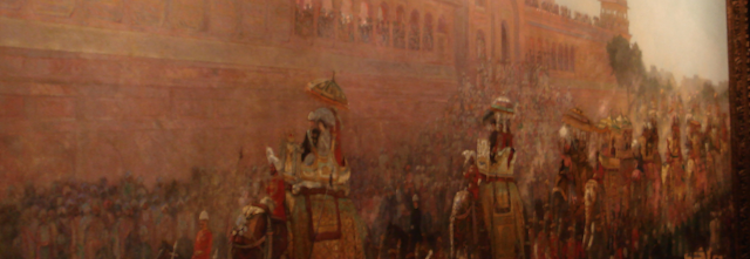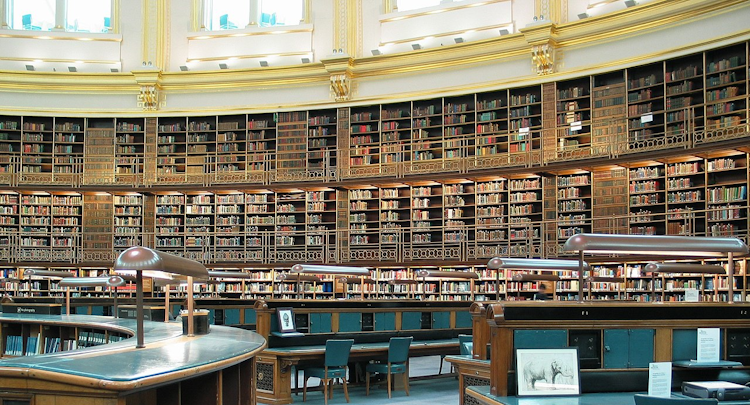I rather enjoy the portfolio of videos made by Simon Whistler, and recently watched one on how the history of the British Empire is taught in British Schools.
Like many, he tries to look at the benefits, such as increased trade, good government, and developed infrastructure, although this is focused on the later stages of the empire. It like Ferguson’s book Empire, but not the TV show, reviewed critically by Andrew Porter, ignores the destruction of Mughal Empire and its economy. Whistler quotes a UK educationalist later in the video, arguing that the colonised territories may well have developed these things themselves even where they did not have such things before the British arrived.
What took me to “Empire” was my memory of the line, about what may define the best of the Empire was the way it ended. Ferguson argues that Britain bankrupted itself fighting fascism in Europe and that its debts to the Commonwealth (and the US) and its impoverishment led to its dissolution. The catalogue of pre-war & post-war atrocities makes this hard to sustain.
Whistler pulls no punches over Britain’s engagement in slavery, the slave trade, its active ethnic cleansing in India, both during the initial colonisation wars, and latterly during partition, the invention of concentration camps, the incidence of civilian massacres, and the use of famine as a tool of political control, although Whistler argues the last of these, and even the partition of India was incompetence, callousness and hubris.
Whistler looks at the development of the national curriculum, noting Thatcher and Cameron’s reforms; I studied history at school, from 1966 – 1974, i.e. before these governments and our curriculum for world politics ended in 1939, not as argued by 1066 and all that in 1945. Politicians and teachers were too frightened to allow recent history to be taught; they considered it politics and forbidden.
Whistler reports that the national history curriculum has always included difficult topics but getting them into the classroom was more difficult due to the curriculum being overfull and the topics actually taught were left to teacher choice and of course the remaining political scrutiny which has not gone away.
It reminded me of my experience as a history student at school, I remember having to ask for a lesson in my “A” level history course on “imperialism and colonialism”. We got 45 minutes, and my recollection is that I was disappointed in what was covered, it being more of a geography lesson, but I am sure the teacher involved had their eye on the likely questions in the exam. We were, for instance, taught nothing of the UK’s relationship with China and so remained ignorant of the Opium Wars and Boxer rebellion. Perhaps my teacher’s reticence to teach the topic was based on his knowledge of those very exam questions.
The biggest impact that slavery had on the then curriculum was its abolition, which avoided any mass struggle dimension posing it as a victory for moralism and definitely avoided the fact that British slave owners were compensated while slaves were not. My memory says it had no impact on the “A” level syllabus.
We spent more time studying Irish home rule movement, although my recollection is that we did not study the Irish civil war in 1916 nor its denouement in 1921. The focus was on Gladstone and his parliamentary struggles with the Irish question and, I’m sorry to say, that even in 1972 to 74, it bored me.
The revolutions of 1948 were, like the disgraces of empire, glossed over and much of Europe’s popular and democratic resistance rolled into studies of the unification of Germany while missing the dissolution of the Austro-Hungarian Empire. WW1 came as a big shock. Did we even study the Russian revolution?
I have no doubt that, possibly despite the inclinations of my teachers, we were taught that Great Britain was great and that any blemishes on our reputation were ignored. Even after studying the reactionary politics of the role that Britain played in European politics after the Napoleonic war, in my mind, I failed to condemn Palmerston’s gun boat diplomacy, the opium wars and the later colonisation of Africa. This left me unprepared for Suez (although I was one at the time), the growth of Chinese power and its assumption of power in Hong Kong and the hostility of many black African countries within the Commonwealth. Fortunately, most of us grow up. …




